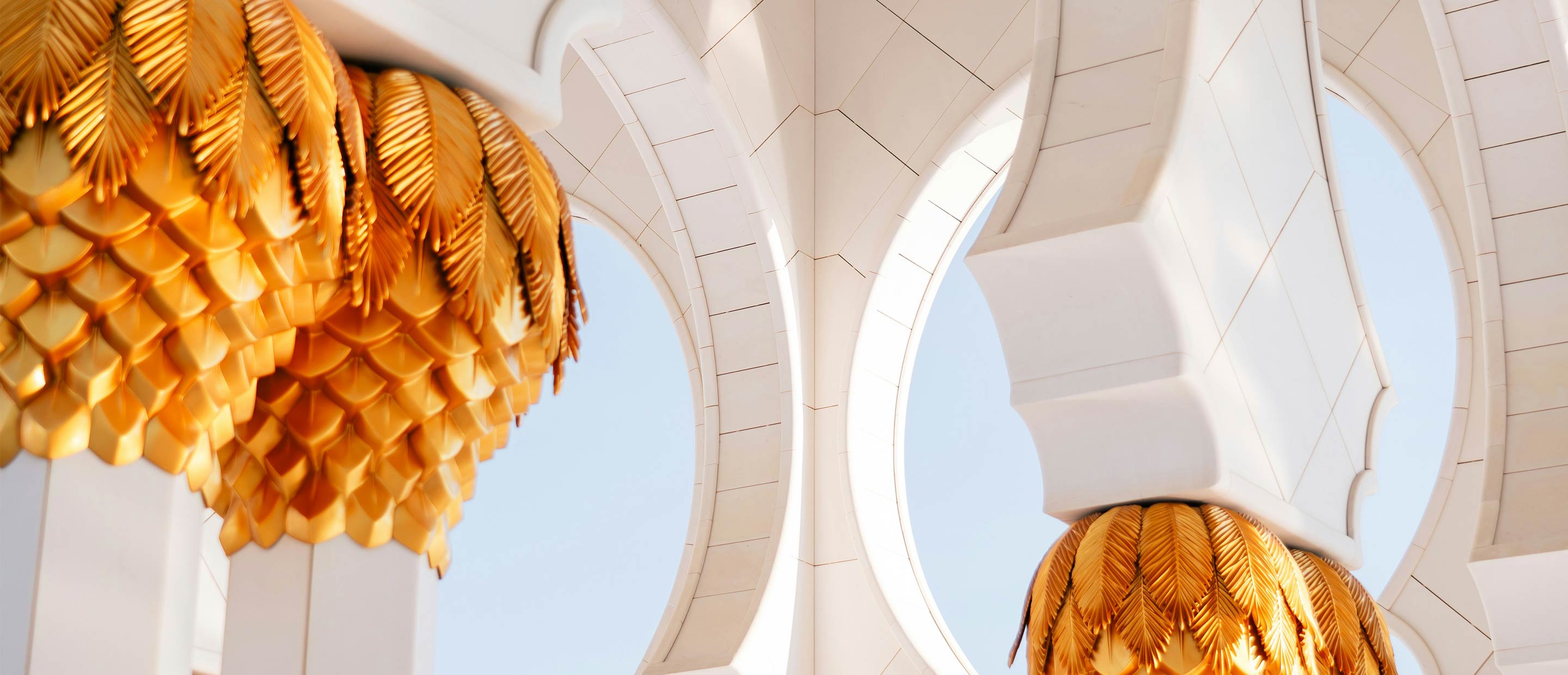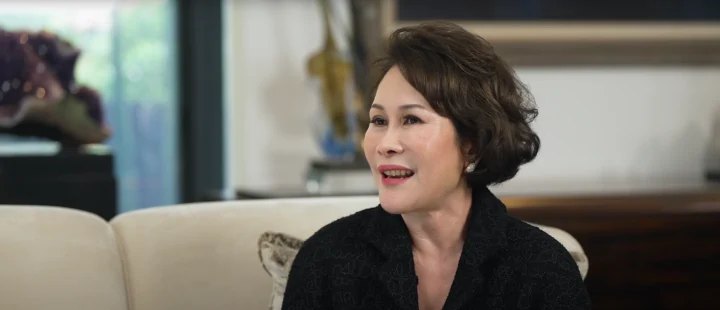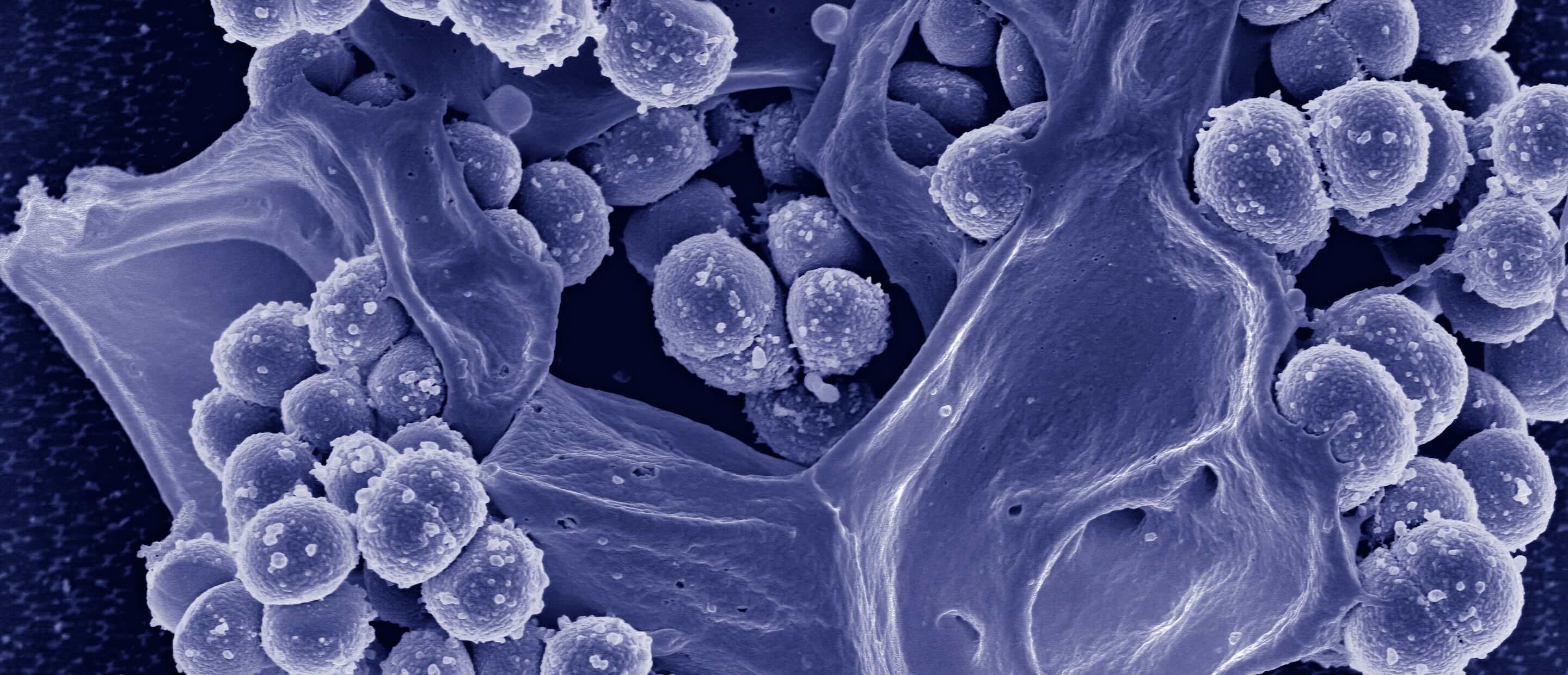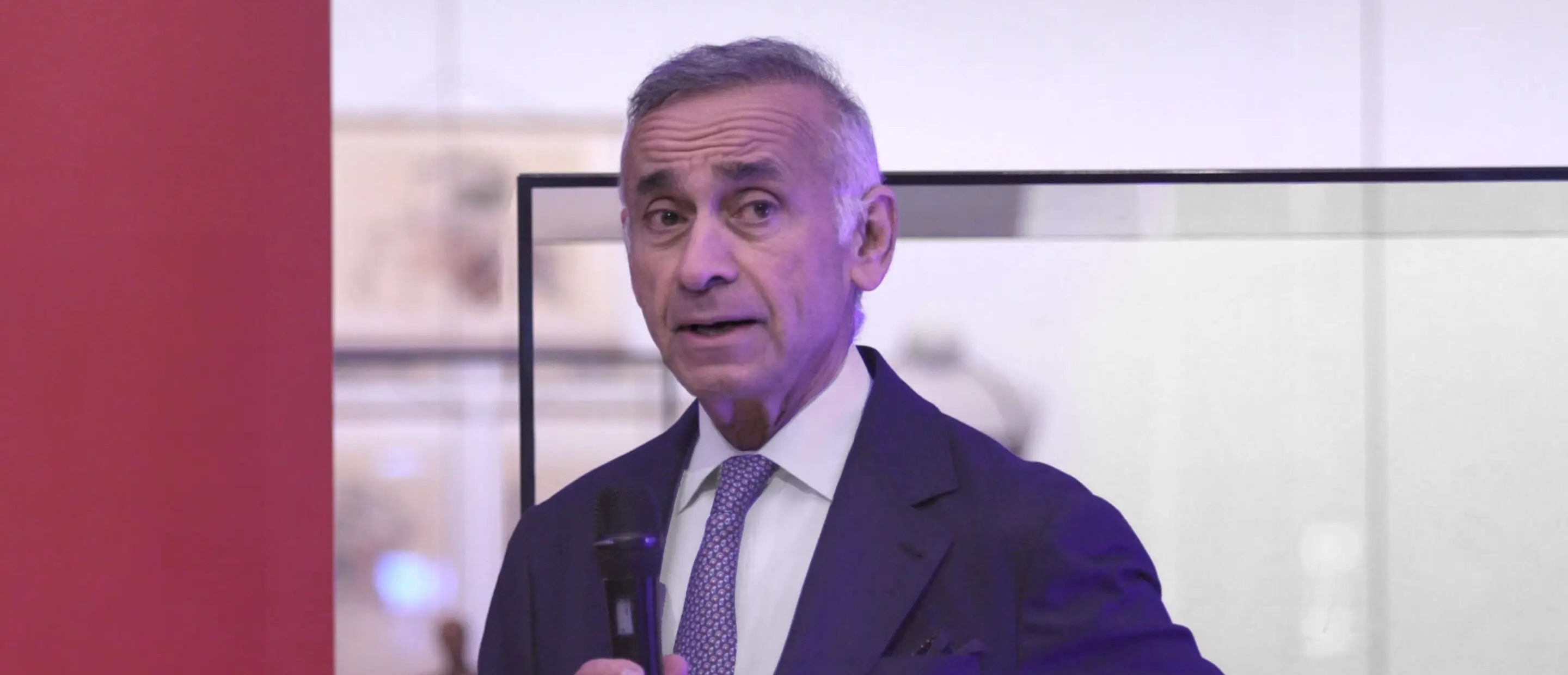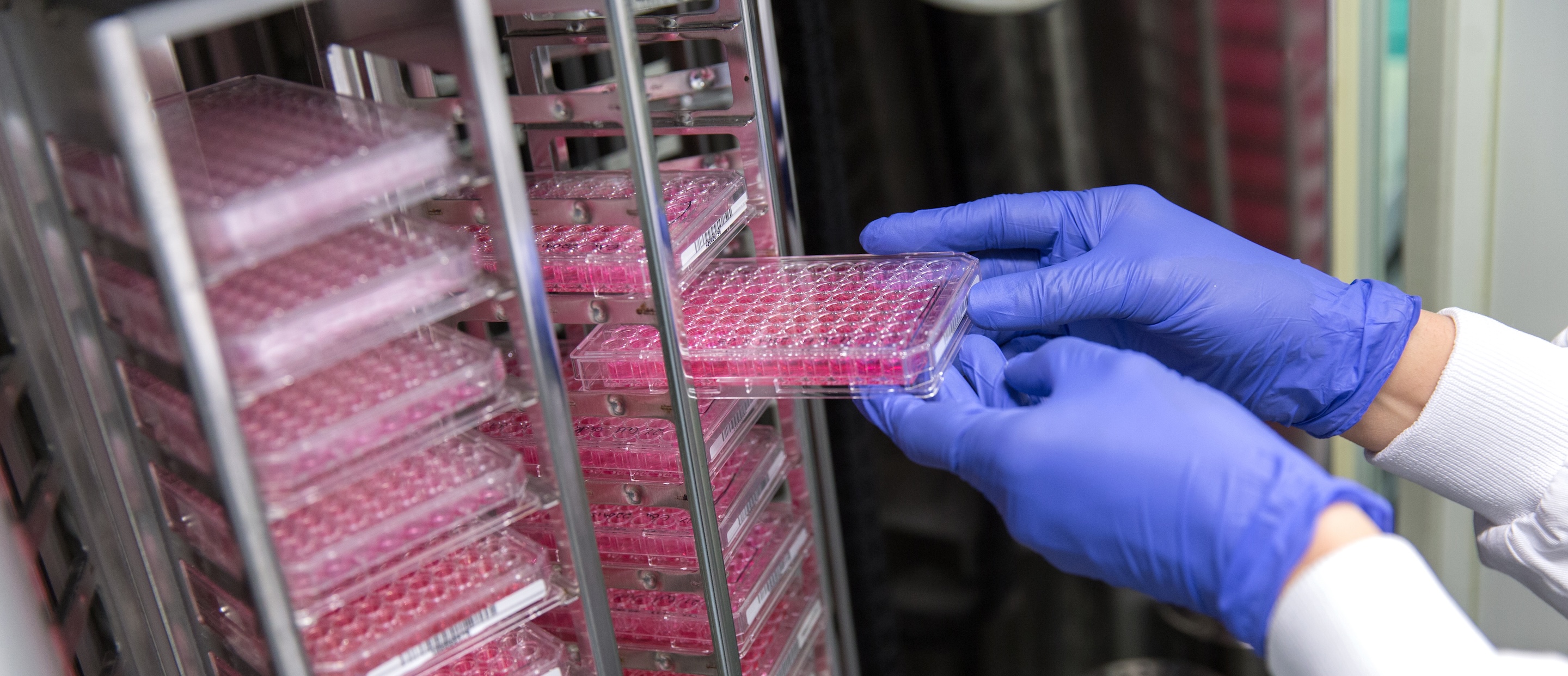The success of Italian fashion brand Luisa Spagnoli has always been due to the ingenious women at the top of the company. A portrait of entrepreneur Nicoletta Spagnoli in WERTE, the Deutsche Bank Wealth Management magazine.
“My great-grandmother was an ingenious woman, a role model for all of us. She founded two companies and was one of the first women worldwide to be on the board of directors of a company – no small feat back at the beginning of the 20th century! Her way of life, her determination, her strength, not to mention her warmheartedness were extraordinary,” says Nicoletta Spagnoli, born in 1955, and since 1986 both CEO and creative director of the Luisa Spagnoli fashion company, founded by her ancestor in Perugia, the capital of Umbria, in 1928.
She doesn’t draw parallels with her own life. “Times are quite simply different now.” Female company bosses may have it easier these days, she says, but being awarded the “Cavalière del Lavoro” [Order of Merit for Labour] by the Italian President doesn’t come easily.
The travel guides tell us that Perugia is always well worth a visit. It looks back on almost 3,000 years of history and culture. However, what the books and online guides rarely reveal is who invented the “Baci Perugina” nougat praline (the one with the hazelnut on top and a love note wrapped in the center), famous all around the world! Over the centuries, Perugia has brought forth many wellknown personalities. The list for the 20th century includes opera singers, footballers, tennis players, musicians, writers and many others. One name, however, is missing: Luisa Spagnoli. And yet, she not only invented the Baci “kisses” but also founded the fashion brand that has been based in Perugia for over nine decades, bears her name, enjoys international renown, and is now run by her great-granddaughter in the fourth generation. Nicoletta Spagnoli is also the personal ambassador of the fashion she has been designing for the brand for decades: feminine, confident and timelessly elegant.
But first things first. Luisa Spagnoli was born in Perugia in 1877, the daughter of fishmonger Pasquale Sargentini. She married Annibale Spagnoli and together they took over a confectionery shop in the historic center of town and began to manufacture chocolates and roasted almonds. During the First World War, Annibale was called to the front and Luisa had to look after the shop, two sons and a daughter alone. As a businesswoman she proved to be courageous and successful, and divorced Annibale, which was probably unheard of in Italy at the time. In old photos she looks like one of the suffragettes fighting for women’s right to vote in the 1920s in the U.S. and Great Britain. As an entrepreneur, she was not only concerned about the growth of the business but also about the welfare of her employees – almost all of them women. In another photo, she is sitting at the wheel of a Fiat 505 roadster. Seated next to her, Giovanni Buitoni, her lover and fourteen years her junior. His name is still synonymous with Italian pasta today.
"My DNA proved stronger: I’ve been virtually breathing fashion since my childhood!"
Nicoletta Spagnoli
While on a trip with Buitoni, Luisa discovered cute Angora rabbits in France. She bought a pair, started breeding them in her garden in Santa Lucia, a district of Perugia, and came up with the idea of using the animals’ soft fur to make yarn for fashionable knitwear. In 1928, she registered the “Angora Spagnoli” trademark and, as a black-and-white photo from the time shows, employed about a hundred spinners who pulled the hair from the white rabbits with a special comb, which was then spun by hand. Spagnoli’s fine knitwear matched the fashion tastes of the time and the company expanded. But the founder did not live to experience her success for long. She died of cancer in 1935 in Paris, where Buitoni had taken her for treatment.
The “Buitoni“ and “Baci Perugina“ brands have long since been taken over by the Swiss food company Nestlé. The Luisa Spagnoli fashion company is still wholly owned by the family. After Luisa’s death, her eldest son Mario took over the company and turned it into one of Italy’s most successful fashion labels in the 1940s. In keeping with his socially conscious mother, he built a residential quarter for the employees, a small village with a nursery school, a doctor’s surgery, a church and shops, as well as sports and recreational facilities. The “Città dell’Angora” is no longer what it was up until the 1960s. “But our social benefits for female employees still exceed the legal requirements,” explains Nicoletta. “For example, we grant maternity leave for 18 months, six months longer than usual.” Rabbits are also no longer bred, angora wool accounts for only a fraction of the textiles used nowadays. The buildings of the workers’ village still belong to the company and can be visited. Nicoletta had the faded, partially destroyed frescos by local artist Gerardo Dottori on the fronts of the houses restored only recently. A homage to the history of the brand, just like the Luisa Spagnoli Museum.
Nicoletta has worked in the company since 1983, taking over after the unexpected death of her father Lino, Mario’s eldest son. She actually studied pharmacy, with the prospect of a scientific career in California. “When my father asked me to join the company, I thought about it long and hard. My DNA proved stronger: I’ve been virtually breathing fashion since my childhood!” She spent hours after school together with the fashion designers in the atelier, learning all the techniques of drawing. Her father once had her and her sister Carla each sketch a dress, and presented his daughters’ creations, sewn in the atelier, at one of the fashion shows. “I was only ten years old; I will never forget the feeling of that proud moment.”
Neither her brother Mario nor sister Carla are active in the business. Instead, Nicola Barbarini, born in 1994, has been by her side for six years. As the only son of the single mother, he is her designated successor and is already taking care of the strategic orientation and digital presence of the brand, as well as new markets. Accessories such as the “Luisa” perfume, sunglasses à la Greta Garbo and bags to rival Hermès are part of the collection. “Thanks to Nicola’s activities, we survived the pandemic and the lockdown through video shopping and e-commerce,” says Nicoletta. “We’re looking to the future with confidence. The longing for beauty never dies. The signs look positive.”
Will Luisa Spagnoli remain a brand exclusively for feminine elegance in the future too, or are there plans for a men’s collection? “Never say never,” replies Nicoletta enigmatically.
About Nicoletta Spagnoli
Since 1986, the great-granddaughter of the company’s founder, whose name the family business has borne since 1928, has been CEO and creative director of the Luisa Spagnoli S.p.A. fashion brand. Nicoletta Spagnoli was born in 1955, studied pharmacy and lived in California before her father brought her into the company. The fashion house is headquartered in Perugia. With 155 boutiques in Italy and 50 flagship stores in Germany, Russia, Poland, Great Britain and the U.S., the brand has an international presence.
This article first appeared in WERTE #24, the client magazine of Deutsche Bank Wealth Management.


